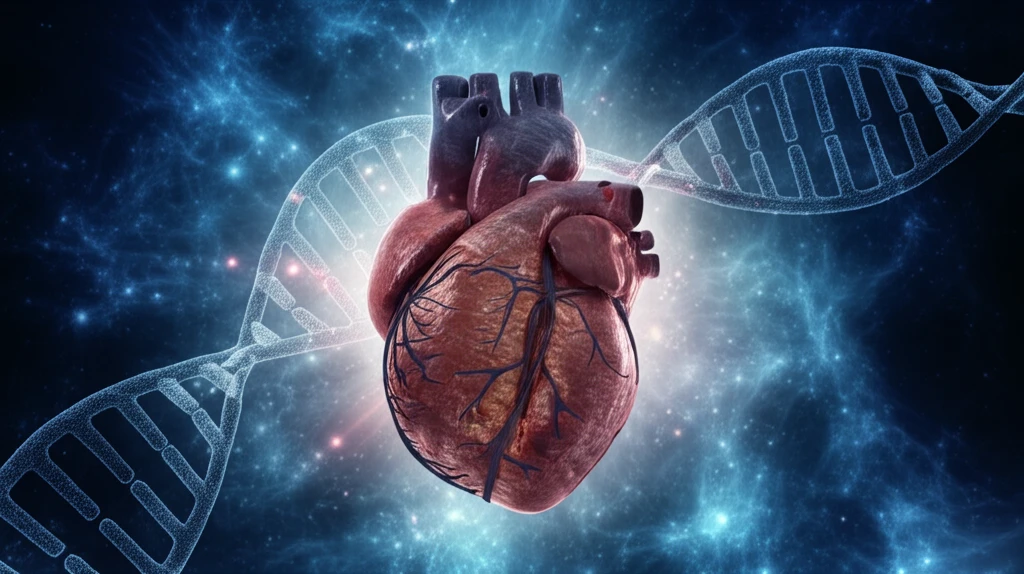
Decoding Heart Health: How Non-Coding RNAs are Revolutionizing Cardiovascular Care
"Unveiling the Hidden Language of Your Heart: Understanding the Role of Non-Coding RNAs in Preventing and Treating Cardiovascular Diseases"
For decades, scientists have focused on genes that code for proteins, the workhorses of our cells. However, a vast portion of our genome doesn't code for proteins at all. This 'non-coding' DNA was once dismissed as junk, but we now know it's far from it. Within this non-coding realm lies a fascinating world of molecules called non-coding RNAs (ncRNAs), which play a crucial role in regulating how our genes behave.
Recent research is revealing that ncRNAs are deeply involved in the development and progression of cardiovascular diseases. From controlling inflammation to influencing the growth of blood vessels, these tiny molecules wield significant power over our heart health. Understanding their role is opening new doors for innovative treatments and preventive strategies.
This article will delve into the exciting discoveries being made in the field of ncRNAs and cardiovascular health. We'll explore specific examples of how these molecules function, the diseases they impact, and the potential they hold for revolutionizing the way we approach heart disease.
NEAT1: The Immune System's Conductor in Heart Disease

Atherosclerosis, or the buildup of plaque in our arteries, is a major contributor to heart disease. Inflammation plays a crucial role in this process, and certain immune cells called macrophages are key players. Research has shown that a specific ncRNA called NEAT1 is involved in regulating the activity of these macrophages.
- Increased NOS2 Production: Macrophages lacking NEAT1 showed a significant increase in NOS2 production when stimulated, indicating a heightened inflammatory response.
- Altered Splenocyte Profiles: Mice without NEAT1 exhibited different gene expression patterns in their splenocytes (immune cells found in the spleen) when fed a high-fat diet, further highlighting NEAT1's role in immune regulation.
- Overlap with Human Data: Interestingly, some of the immune-related genes affected by NEAT1 deficiency in mice were also found to be dysregulated in patients with heart attacks, suggesting a potential link between NEAT1 and human heart disease.
The Future of Heart Health: Targeting Non-Coding RNAs
The research discussed here provides a glimpse into the exciting potential of ncRNAs as therapeutic targets for cardiovascular diseases. While still in its early stages, this field holds promise for developing new treatments and prevention strategies that could significantly improve heart health outcomes for millions of people. Further research is needed to fully understand the complex roles of ncRNAs and to translate these discoveries into clinical applications.
